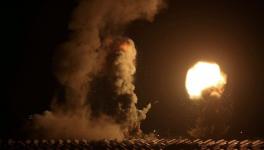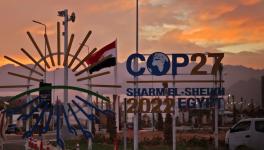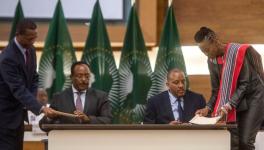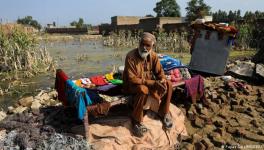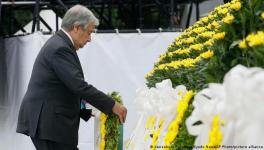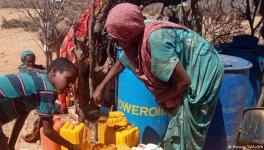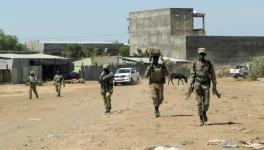Ethiopia on the Brink as Govt. Forces Set to Continue Military Campaign in Tigray Region
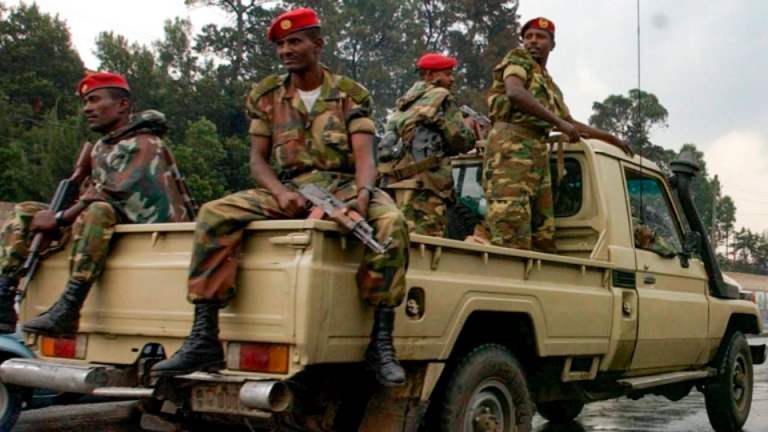
Ethiopian Prime Minister Abiy Ahmed has said that military action will continue against the government of the Tigray region. Photo: EPA
Even as the U.N. Secretary General António Guterres called for “an immediate de-escalation of tensions” on Friday, November 6, the Ethiopian Prime Minister Abiy Ahmed confirmed that the military had carried out airstrikes in the region of Tigray.
Claiming that the airstrikes had destroyed, “rockets that can hit a range of 300km (186 miles) from where they are stationed in Mekelle City and other places in the vicinity”, Abiy vowed on Saturday that more airstrikes would follow.
Located on the north-end of the country, bordering with Eritrea, Tigray is known to be the most heavily armed of the ten autonomous regions. It is ruled by the Tigray People’s Liberation Front (TPLF), which was a dominant force in Ethiopian politics until Abiy Ahmed rose to power in the backdrop of anti-government protests in 2018.
While the federal government seeks to remove this party from power through a military intervention, analysts warn that TPLF may not be defeated quickly. The clashes, which are reported to include artillery fire, might escalate into a full blown civil war, drawing in other regions of the ethnically divided Ethiopia.
The second-most populous country in Africa, Ethiopia is flanked on the east by Somalia and by Sudan and South Sudan on the west. The UN and the African Union have expressed concern that a military conflict in this country has the potential to destabilize the broader region.
The military escalation began on Wednesday when Abiy ordered the military into the Tigray region. He alleged that the armed forces of the regional government had “attacked the Ethiopian National Defense Forces Base located in Tigray region and attempted to rob the Northern command of artillery and military equipment”, in the early hours of November 4.
The statement from the Prime Minister’s office further said the “TPLF has been arming and organizing irregular militias outside of the constitutionally mandated structure.” On the other hand, the TPLF claimed that the federal government’s Northern command had defected to its side – a claim that the federal government has disputed.
Since the TPLF’s “command was at the forefront of the struggle with neighboring Eritrea since the 1998-2000 war, it still comprises more than half of the armed forces’ total personnel and mechanized divisions,” according to the International Crisis Group’s report in October.
TPLF was a dominant party of the ruling coalition when Abiy rode power on the back of the anti-government protests in 2018. Soon after, a number of TPLF leaders in senior positions were sacked and tried for corruption by the Abiy-led government. The TPLF called it a purge.
Amidst this tension, Abiy dissolved the ruling coalition called Ethiopian People’s Revolutionary Democratic Front and merged the various parties constituting it into the Prosperity Party in December 2019. The TPLF had refused to dissolve itself and moved to the opposition.
This simmering tension escalated in March when the federal government decided to postpone the election scheduled for August 2020, in light of the COVID-19 pandemic. In June, the upper house of the federal parliament extended the mandate of the federal as well as the regional governments until the election that is to be held “nine to 12 months after health authorities determine it’s safe”, AP reported.
Declaring the extension of mandate as unconstitutional, the Tigray regional government conducted elections on September 9, in which the TPLF won a large majority. The upper house of the federal parliament ruled the election to be “null and void” and deemed the Tigray government to be unlawful.
The Tigray regional government, in turn, refused to comply with the federal laws, declaring the federal government – whose term was originally set to expire on October 5 – to be illegitimate. US$7.6 million of funds collected from donors for social welfare was withheld by the finance ministry on October 24.
The finance ministry has also planned to bypass the regional government by transferring the budgetary allocations directly to the local administration. The Tigray regional government officials had told the International Crisis Group that they would respond by withholding the taxes it collects for the federal government.
The escalation of this hostility into a military conflict has brought Ethiopia on the verge of a civil war. Incidentally Abiy had won the Nobel Peace Prize in 2019 for “his decisive initiative to resolve the border conflict with neighboring Eritrea.”
His efforts to end the ethnic divisions in the country has also won appreciation from many observers. However, with the regional government largely organized along ethnic lines, Abiy’s attempts to resolve the ethnic fissures by pushing for a united state has come into a clash with the Federalist principles, which many observers point out to be at the core of this conflict.
Courtesy: Peoples Dispatch
Get the latest reports & analysis with people's perspective on Protests, movements & deep analytical videos, discussions of the current affairs in your Telegram app. Subscribe to NewsClick's Telegram channel & get Real-Time updates on stories, as they get published on our website.











